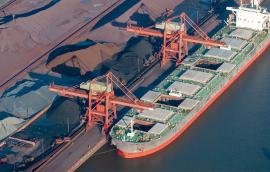All-In on the U.S.-Korea Relationship: More Jobs, More Investment, More Prosperity
The significant economic benefits of the U.S.-South Korea relationship, including billions in Korean investments in American industries, have created thousands of U.S. jobs. In a new Center for Strategic and International Studies (CSIS) commentary, nonresident fellow Henry Haggard suggests that reducing tariffs, expanding visa opportunities, and fostering more joint ventures in sectors like steel and shipbuilding could further enhance prosperity and security for both nations.
Henry Haggard November 12, 2024









